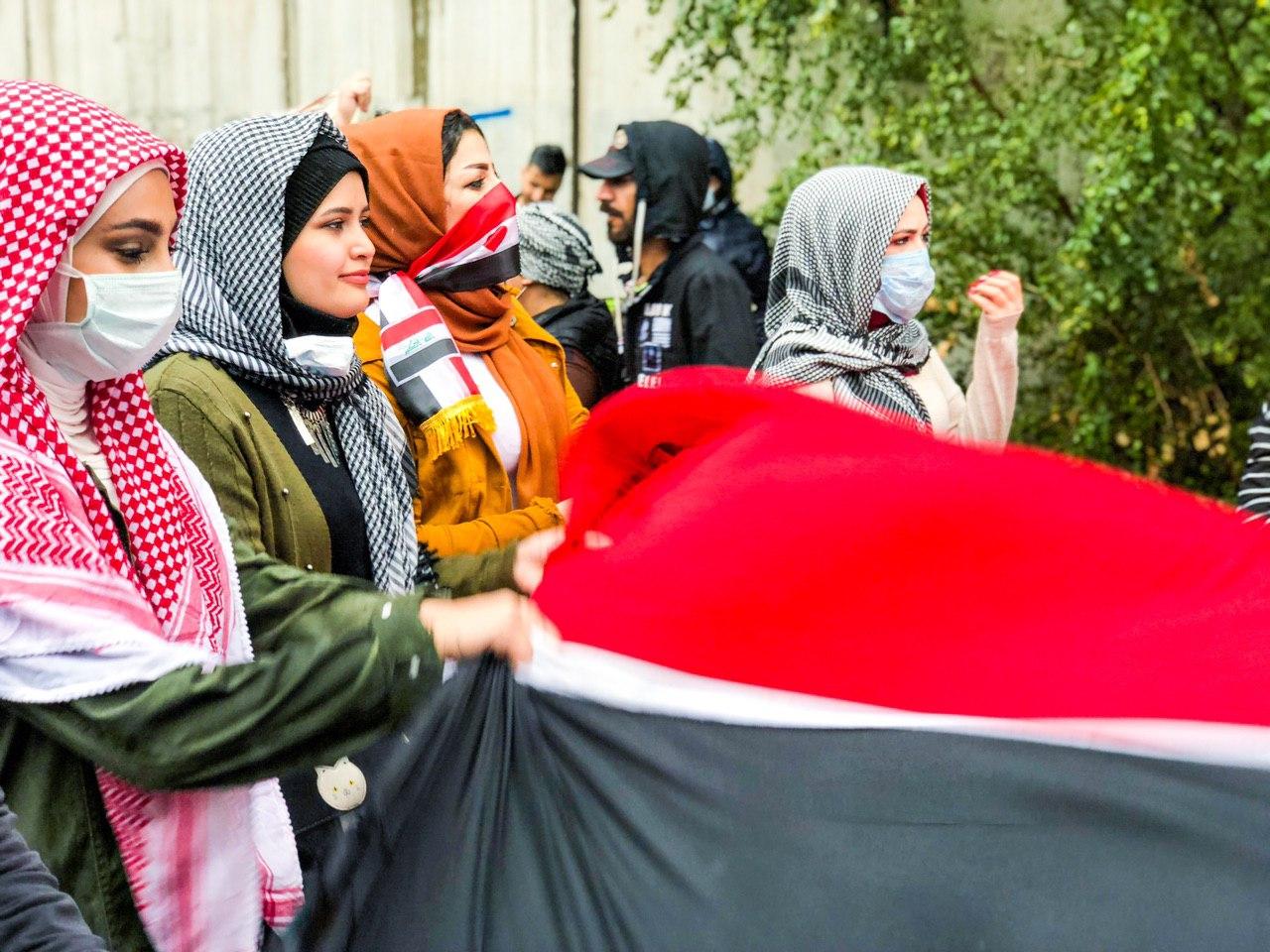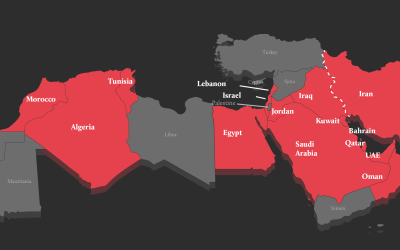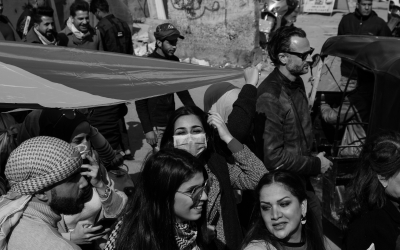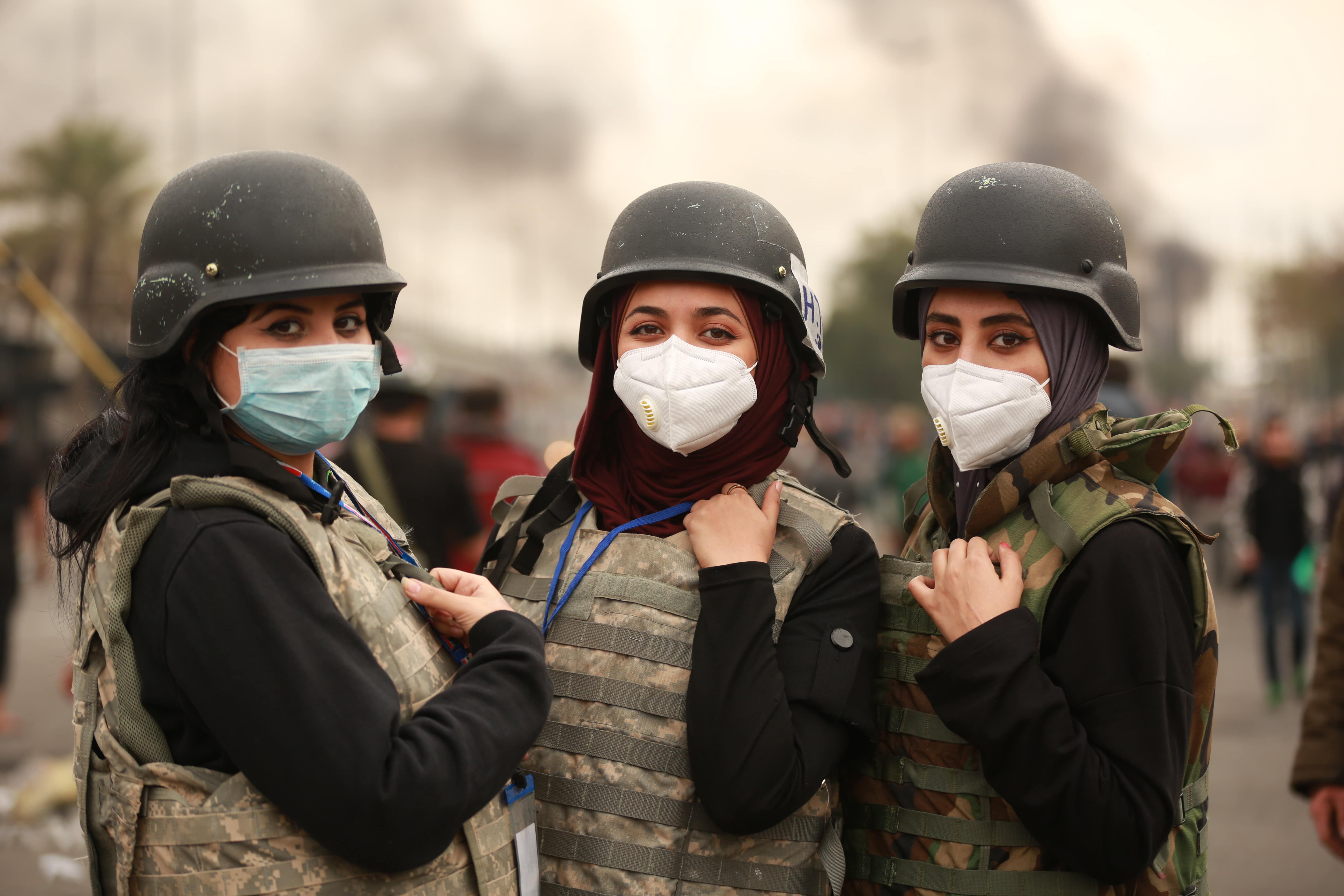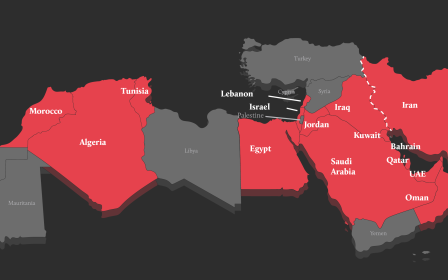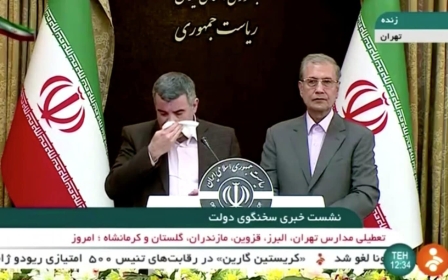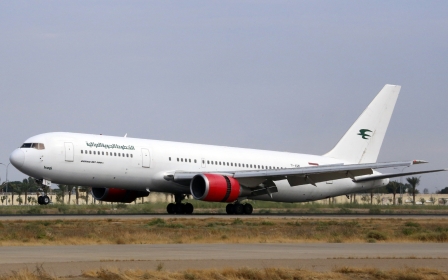'Coronavirus won't stop us': Iraqis vow to continue protests despite spread of lethal virus
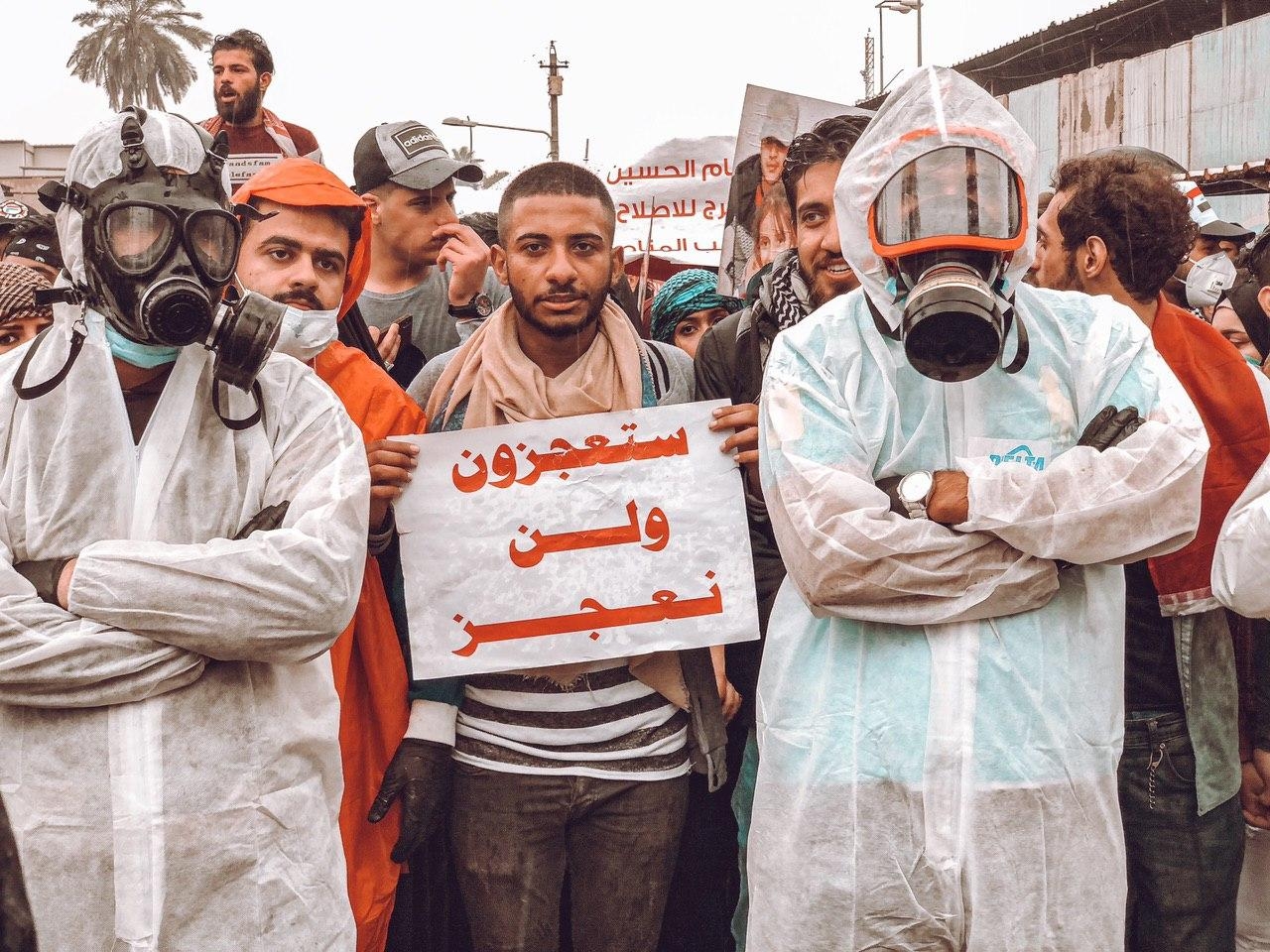
Wearing face masks, gas masks and mock bio-hazard suits, Iraqis vowed to continue their months-long protest against the central government on Tuesday, despite five cases of the lethal coronavirus being reported across the country.
In Baghdad's busy protest site of Tahrir Square, hundreds rallied against Iraq's ruling elite, despite pleas from the Ministry of Health that demonstrators steer clear of public places and remain at home.
Carrying banners reading: "The people want to overthrow the regime," several of the protesters were wearing surgical masks, but many had their faces uncovered, prompting fears that rallies and sit-ins could serve as incubators for the virus.
'The government and its militias used all kinds of weapons to kill us. They are more dangerous than a virus'
- Ali Laith, protester
So far, at least five cases of coronavirus, officially known as COVID-19, have been reported in Iraq: four in the northern city of Kirkuk, and one in the holy city of Najaf.
While no cases have been reported in the capital, Baghdad, the Ministry of Health sent text messages to Iraqis, urging them to wear protective masks and "properly" dispose of used tissues.
New MEE newsletter: Jerusalem Dispatch
Sign up to get the latest insights and analysis on Israel-Palestine, alongside Turkey Unpacked and other MEE newsletters
The instructions come after neighbouring Iran reported 16 deaths, with the city of Qom emerging as the epicentre of the virus.
Cases have also been reported in Bahrain, Kuwait, the United Arab Emirates and Oman.
Militias more dangerous than virus
Al-Qasem Ahmed, a 24-year-old activist in Baghdad, told Middle East Eye that protesters should avoid marching in virus-hit provinces, or at least "wear masks and gloves while protesting".
In an attempt to stymie a larger outbreak, Iraq banned travel to and from the Islamic Republic last week.
Despite the growing alarm, protesters continued to hit the streets of Basra on Tuesday, with scores amassing at one sit-in.
"I know coronavirus is dangerous, but I could not go back home. Returning home means that we lose the revolution that we spent days and nights fighting for," Ali Laith, a 17-year-old protester wearing a surgical mask told MEE.
"The government and its militias used all kinds of weapons to kill us. Thousands were injured and hundreds killed. They [government forces and Iran-backed militias] are more dangerous than a virus."
Demonstrations have rocked Iraq since 1 October, when protesters flooded streets and squares in response to widespread corruption, poor infrastructure and perceived Iranian intervention in Iraq's internal affairs.
At least 600 people have been killed and more than 25,000 wounded, in a crackdown rights groups have called a "lethal campaign of repression".
Coronavirus won't curb protests
"I am here since the demonstrations began in October and will never spend a day at home," Laith said.
"The government was happy thinking coronavirus will curb our wave, but they are totally wrong."
Shia leader Muqtada Sadr, a populist cleric with a large following, rescinded an earlier call for his supporters to join anti-government rallies on Tuesday.
Although initially supportive and protective of the anti-government protest movement, Sadr made a U-turn after the designation of Mohammed Tawfik Allawi as Iraq's prime minister earlier this month.
In response, Sadr's supporters attacked a number of protest camps across the south, including Najaf, where at least seven people were killed.
"For your health and safety, I forbid" you to protest, he wrote on Twitter.
A doctor from Basra city told MEE that Iraq's health ministry did not have the means to curb the coronavirus, with state hospitals facing an "acute shortage" of medicines.
"Medical staff are not trained on how to treat the epidemic," the doctor said, with medical staff not in possession of medical devices that could help detect the virus.
"In medicine, prevention is better than cure, so the government must arm itself [if it is] to face an epidemic threat."
This article is available in French on Middle East Eye French edition.
Middle East Eye delivers independent and unrivalled coverage and analysis of the Middle East, North Africa and beyond. To learn more about republishing this content and the associated fees, please fill out this form. More about MEE can be found here.


